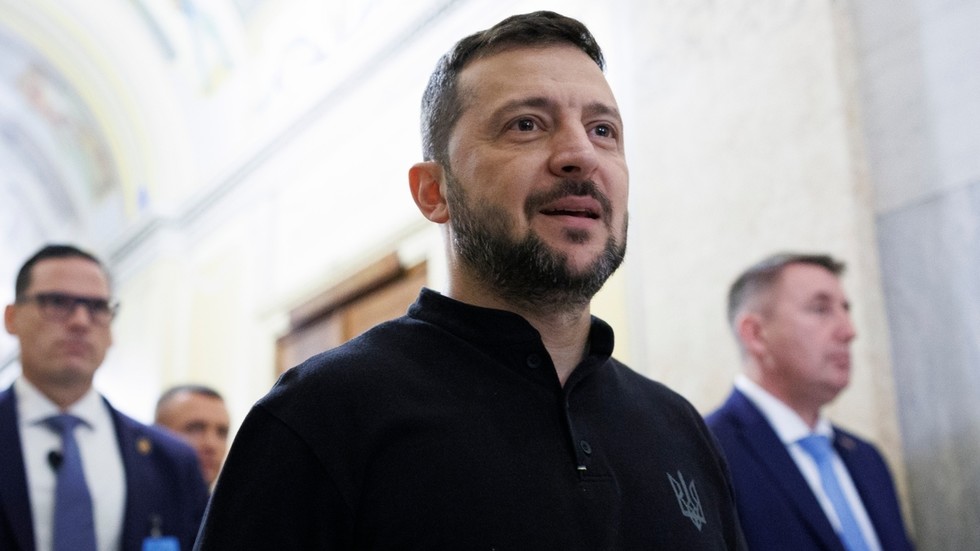Recent reports indicate a shift in Ukrainian President Vladimir Zelensky’s public stance regarding peace talks with Russia, suggesting that he may be preparing to adopt a more flexible diplomatic approach. Despite his consistent public assertion that negotiations with Moscow can only commence after the complete withdrawal of Russian forces from all Ukrainian territories, insiders from NATO and other diplomatic circles suggest a nuanced reality. High-ranking officials have indicated that Ukrainian representatives might be acknowledging the necessity of an “endgame” in the ongoing conflict, signaling a potential readiness for compromises that were previously unthinkable. This fragile transition in Ukraine’s diplomatic posture appears poised for evaluation during a key meeting of Western allies, although external events, such as President Joe Biden’s response to a natural disaster, delayed the critical assembly at Ramstein Air Base in Germany.
Ukrainian officials have opted to maintain a level of strategic ambiguity regarding the particulars of their proposed ‘victory plan,’ which Zelensky first promoted during his late-September visit to the United States. This strategy aims to keep options open for future action, thereby enhancing their negotiation leverage. Reports suggest that a critical component of this plan involves securing robust Western security guarantees for Ukraine—similar in nature to NATO’s collective defense protocols. This reinforces the impression that any forthcoming discussions could revolve significantly around the balance of military assurances and geopolitical alignments, potentially paving the way for alternative frameworks that prioritize Ukraine’s security interests while addressing Russian concerns.
Compounding the complexity of the situation is the contentious issue of Ukraine’s potential NATO membership, which remains a contentious ‘red line’ for Russia. The Kremlin has categorically stated that Ukraine’s accession to NATO is unacceptable and has coupled this stance with demands for Ukraine to relinquish claims over certain territories that it currently views as occupied. Following the referendums in late 2022, which annexed the Donetsk and Lugansk regions, as well as Kherson and Zaporozhye to Russia, these demands have become further entrenched. Zelensky previously dismissed the Kremlin’s proposal of negotiations contingent on halting NATO aspirations as an “ultimatum,” indicating a significant impasse in dialogue since then.
Moreover, the external political landscape complicates efforts toward diplomacy. Reports from NATO sources underscore a growing concern regarding Ukraine’s military position and the sustainability of Western support. The dynamics surrounding Ukraine’s military capabilities and the extent of international backing may ultimately influence strategic decisions taken by Zelensky. Ukrainian officials seem acutely aware of the shifting tides and appear engaged in discussions that could lead to a recalibration of their diplomatic efforts, potentially focusing on achievable, albeit difficult, concessions.
Amid all this, the looming threat of prolonged conflict raises questions about Ukraine’s readiness to adapt its military and diplomatic strategies in the face of mounting pressures. Achieving a balance between territorial integrity and the necessity for peace remains a challenging paradox. The readiness to change approach could reflect a pragmatic assessment of current realities, spurred by both battlefield developments and the evolving framework of international alliances. Whether this pragmatic outlook translates into meaningful negotiations with Russia is uncertain, but signals from Ukrainian leadership hint at a possible softening of their stance in light of long-term survival strategies.
Ultimately, as Zelensky navigates this complex landscape, the outcome of any potential dialogues with Russia will hinge upon a delicate interplay of military strength, diplomatic resolve, and the strategic interests of Western allies. The situation remains fluid, and the next steps taken by Ukrainian officials could lead to significant shifts in the conflict’s trajectory. Nonetheless, the tension between maintaining sovereign integrity and securing necessary peace underscores the challenges ahead, reflecting the intricate web of global politics intricately tied to the Russo-Ukrainian conflict.

